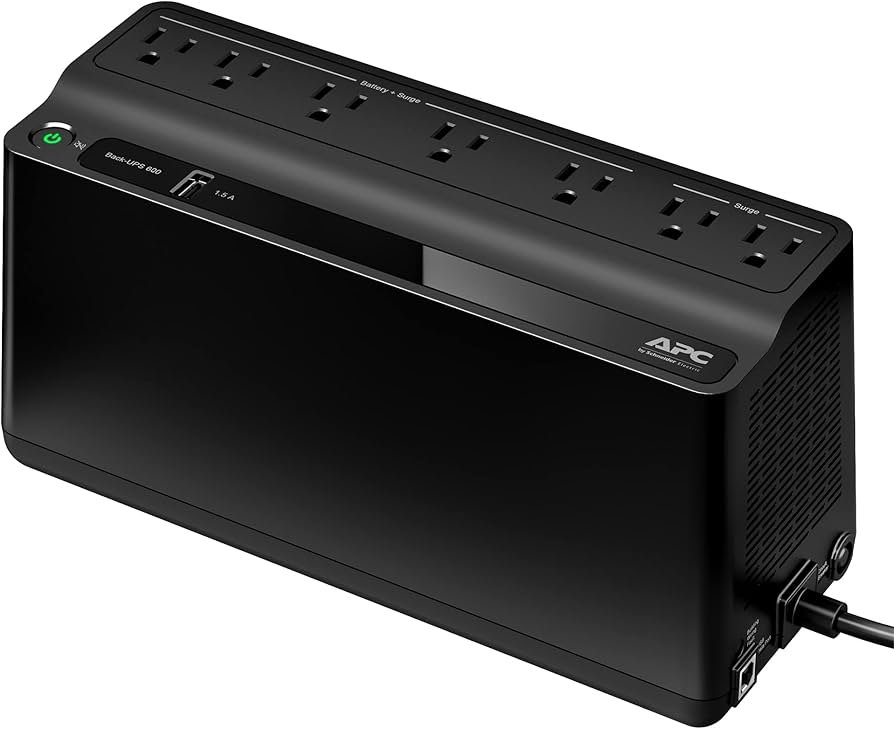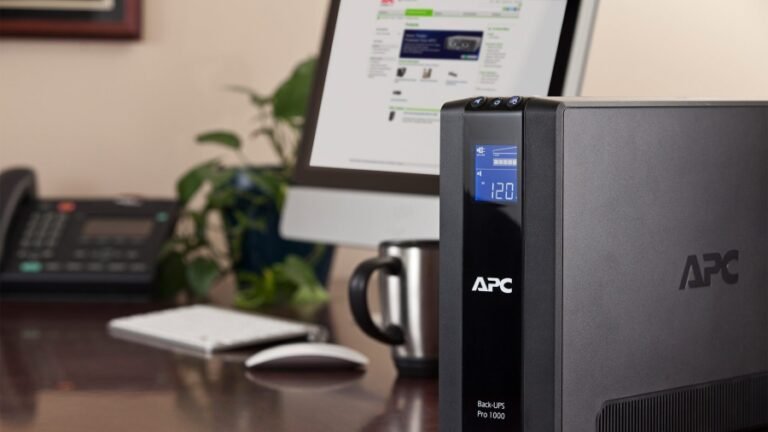APC battery backup systems, also known as uninterruptible power supplies (UPS), are essential devices designed to provide emergency power during electrical outages, ensuring that critical electronic equipment remains operational. These systems act as a power reservoir that kicks in immediately when there is an interruption in the main power supply. This function is particularly crucial for protecting sensitive equipment from power surges, sudden shutdowns, or equipment failure, which can be detrimental to both data integrity and physical devices.
Manufactured by Schneider Electric, APC offers a range of battery backup models tailored to various needs. From compact units suitable for home offices to robust systems that can support larger enterprises, each model features distinct specifications. For instance, some models provide multiple outlets, allowing several devices to be connected, while others may include advanced features like LCD displays for monitoring power status, automatic voltage regulation, and data line protection.
Home users often benefit from APC battery backup systems during storms or regional power outages, ensuring that personal computers and home networks remain operational. Small businesses, which may depend on point-of-sale systems, networking equipment, or servers, also utilize these devices to minimize downtime and protect valuable data. Meanwhile, larger enterprises may require more robust solutions that can support critical infrastructure, manage energy loads effectively, and provide extended battery runtime for essential systems.
APC battery backup systems ultimately serve a dual purpose: they maintain continuity of power during unexpected interruptions and safeguard sensitive electronic equipment from voltage irregularities, making them indispensable for anyone reliant on steady electricity. Understanding the various models and their applications can help consumers choose the right system for their specific power needs.

Benefits of Using APC Battery Backup
APC Battery Backup systems offer a plethora of benefits that are crucial for both residential and commercial applications. One of the primary advantages is the provision of an uninterrupted power supply (UPS). This feature is particularly vital during power outages, as it allows connected devices to continue functioning seamlessly. For businesses that rely on constant uptime, such as data centers or healthcare facilities, having a reliable backup system is non-negotiable.
Another significant benefit of using an APC Battery Backup is its ability to protect against power surges and spikes. These unexpected electrical fluctuations can damage sensitive electronic equipment and lead to costly repairs. With an APC system in place, users can confidently operate vital devices without fear of interruption or damage from voltage irregularities. This not only safeguards equipment but also prolongs its lifespan, thus providing a considerable return on investment over time.
Real-life scenarios illustrate just how invaluable APC Battery Backups can be. For instance, consider an office environment where critical data is processed and stored on computers. In the event of a sudden power blackout, an APC Battery Backup will provide immediate power, allowing users to save their work and shut down their devices safely. This prevents data loss and ensures business continuity, which is essential in today’s fast-paced landscape.
Moreover, sensitive electronic devices—such as televisions, gaming consoles, and audio equipment—benefit significantly from the installation of an APC Battery Backup. By offering protection from power inconsistencies, these systems enhance performance and longevity, providing peace of mind to users. Overall, the diverse advantages of APC Battery Backup systems firmly establish their critical role in protecting technology investments and ensuring operational reliability.
Choosing the Right APC Battery Backup
Selecting the appropriate APC battery backup is crucial for ensuring the reliability of your electronic devices during power interruptions. One of the primary factors to consider is the power capacity, which is typically expressed in volt-amperes (VA). It is essential to calculate the total wattage of the devices you plan to connect to the battery backup. A good rule of thumb is to choose a unit with a VA rating that exceeds your total wattage requirement to accommodate any potential surges in power use.
Next, consider your runtime requirements. Different APC battery backup models offer varying runtimes, which are influenced by their battery capacity and the amount of load they are supporting. If you have critical devices that require long-term power during outages, it is advisable to opt for models designed for extended runtime. Conversely, if the power outages are brief, a less robust model may suffice.
Additionally, the number of devices you need to connect plays an important role in your decision. Evaluate the connections available on the APC units, including the number of outlets and any additional ports for USB charging. This will help ensure that your essential devices can remain operational during a blackout.
The layout of your space should not be overlooked either. If you require a device to fit into a specific area, consider the dimensions and design of the APC battery backup units. It’s also beneficial to research the differences between various models, as some may come with advanced features, like smart monitoring software or modular battery options, which can provide insights into battery status and device performance.
Finally, budgeting is an essential aspect of the decision-making process. While it may be tempting to purchase a lower-priced option, investing in a high-quality APC battery backup can yield long-term savings and peace of mind, ensuring your valuable devices are protected against unexpected power failures.
Maintenance and Best Practices for APC Battery Backup
Maintaining your APC battery backup unit is essential for ensuring reliable performance during power interruptions. Regular maintenance not only helps in prolonging the lifespan of the battery but also ensures that devices remain protected against unexpected power outages. Proper installation is the first step in achieving optimal performance. Ensure that your UPS (Uninterruptible Power Supply) is positioned in a well-ventilated area and avoid placing it near heat sources or direct sunlight to prevent overheating.

Routine checks are fundamental to the longevity of your APC battery backup. Regularly inspect the unit for swelling or leakage, which can indicate potential battery failure. Additionally, monitoring the LED indicators on the device can provide immediate feedback on its health status. Utilizing software provided by APC can enhance this monitoring by offering detailed diagnostics and alerts about system health, power consumption, and battery condition.
Battery replacement is a critical aspect of maintenance. APC typically recommends replacing the battery every 3 to 5 years; however, this can vary based on usage and environmental conditions. It is advisable to keep track of the unit’s age and performance metrics through monitoring software. If you notice a significant drop in runtime or frequent alarms, it may be time to consider a battery replacement.
Troubleshooting common issues is also an integral part of maintenance. Frequently encountered problems include poor connectivity or failure to switch to battery mode. Regularly updating the firmware of your APC battery backup unit can mitigate many operational hitches. Furthermore, extending battery life is possible by avoiding complete discharges, ensuring the device operates within specified loads, and keeping it in an optimal temperature range.
To conclude, by adhering to best practices for your APC battery backup, including proactive maintenance and timely upgrades, you can ensure the reliability and efficiency of your power protection system.
